Related: All Attacks on Palestinians – Timeline – Category
Welcome to West Bank Palestine: Daily Harrasement, intimidation, discrimination, racism, humiliation, denial of humanitarian treatment, respect and even medical aid, women dying at checpoints during labor, or elders in need of medical assistance, violence, interrogations and even killings. Open your eyes and SHARE, so the world witnesses the truth. 64 years ongoing now. It has been enough!

Below some remarks transcripted from the video below
“Animals. Animals. Like the Discovery Channel. All of Ramallah is a jungle. There are monkeys, dogs, gorillas. The problem is that the animals are locked they can’t come out. We’re humans. They’re animals. They aren’t humans we are.”
– Israeli border police (you can find at 5:03 of this video)“We let them suffer, in the sun, in the rain, that’s it. That’s what I wanted to say. Let the whole world know.”
– Israeli border police“When the Palestinians come…we put on our show.”
– Israeli border police“Nobody knows about us here. Nobody in the world.”
– Palestinian businessman“Look at what they do to us, do to our children. Look!” –
Mother with two children“Food for my wife, Christmas tomorrow. Meal for my family! I’ll be back in the morning!”
– Elderly Palestinian man
Violence and Harassment at Israeli Checkpoints.
Watch the rifles pointed at children. People endless waiting. Refused to enter, demolishment of property … and more
Checkpoints
“The right to freedom of movement provides that people are entitled to move freely within the borders of the state, to leave any country and to return to their country.”
Article 13 of the Universal Declaration of Human Rights and article 12 of the International Covenant on Civil and Political Rights. December 10th, 1948
Movement Restrictions: The Facts
– By September 2008 there were 699 closure obstacles in the West Bank– approximately 130 of these have been added after the Annapolis Conference began in November 2007.
– 630 of the obstacles have been identified: trenches (3%), partial checkpoints (3%), earth walls (7%), road-blocks (11%), road barriers (12%), checkpoints (12%), road gates (16%) and earth mounds (36%).
– 74 % of the main routes in the West Bank are controlled by checkpoints or blocked entirely.
– In the period from April to September 2008 the weekly average of flying (or random) checkpoints was 89. Due to their unpredictable nature and more intensive search procedures, the flying checkpoints are usually even more problematic for the Palestinians than the regular ones.
Movement Restrictions
Over the last forty one years of the military occupation of Palestinian land, Israel has implemented a policy of movement restrictions including checkpoints, earth mounds, trenches, gates, roadblocks, bypass roads, the Wall, and a complex system of permits.
From 1967 to 1991, restrictions on the movement of Palestinians were relatively light. However, with the beginning of the first Intifada in 1987, Israel increasingly restricted Palestinians’ freedom of movement by implementing a permit system; and in 1988, Israel began preventing Palestinians from traveling between the Gaza Strip and the West Bank. With the start of the first Gulf War in 1991, the Israeli Military imple-mented further restrictions on the permit system. Every Palestinian was required to obtain an individual permit, instead of general permits that applied to the population as a whole. In 1993, Israeli military check-points were established along the 1949 Armistice Line between the West Bank and Israel; between the West Bank and East Jerusalem; and between cities within the West Bank.
From the beginning of the Second Intifada in 2000, the Israeli Military increasingly restricted Palestinians from moving freely. In 2001 it became illegal for Israeli citizens to travel into Area A (areas under full Palestinian control) in the West Bank. From 2002 to the present, closure policies have substantially tightened and the entry of Palestinian workers into Israel has drasti-cally decreased.
Israeli and Palestinian security-controlled areas map-
Since the onset of the Annapolis Peace Process, there have been no changes in Israeli policy, and in fact a recorded increase in the num-ber of movement restirctions face by Palestinians in the West Bank.
Economic Impact
According to the World Bank, the recession in the Palestinian economy since 2000 is “among the worst in modern history”. The restrictions on freedom of movement that Israel has imposed on Palestinians since the outbreak of the second In-tifada is the primary cause of the decline of the Palestinian economy and chronic increases in unemployment and poverty across the Occupied Territories. Examples of the fragmentation of the local Palestinian economy includes, but are not limited to: economic separation between the West Bank and Gaza, severe limitations on economic interaction with Israel, no access to mar-kets for vendors of perishable products, isolation of markets in East Jerusalem from the rest of the West Bank and a decline in investments due to uncertainty and inefficiency.
A report by the World Bank published in May 2007 stated that economic recovery and sustainable growth within the West Bank would ”… require a fundamental reassessment of closure practices, a restoration of the presumption of movement, and review of Israeli control of the population registry and other means of dictating the residency of Palestinians”.
Access to Health Care
Restrictions on the freedom of movement of Palestinians have seriously affected their access to medical care, including emergency medical treatment. The ability to reach medical care and healthcare is very uncertain and depends on a number of arbitrary decisions and restrictions.
Soldiers at checkpoints consistently stop ambulances and patients. The Palestinian Red Crescent Society, has reported 112 deaths and 35 stillbirths as a result of preventing medical personnel and patients from crossing checkpoints. The World Health Organization deplores “the incidents involving lack of respect and protection for Palestin-ian ambulances and medical personnel (…) as well as the restrictions on movement imposed on them by Israel, the occupying power, in violation of international humanitarian law”.
Checkpoint Births
According to the World Health Organization, at least 71 women have given birth at check-points the the outbreak of the Second Intifada in September of 2000 to 2006. These women endure labor in some of the most unsanitary and inhumane conditions possible.
The risk to themselves and to their babies is grave.Out of these 71 cases recorded by WHO, 35 of the newborns have died and a total of five mothers have also perished. In all of the instances, whether the baby lives or dies, the mother carries deep emotional scars.
As is so often the case, the statistics vary from one source to another. The most recent reliable source has been the UN General Assembly, Annual Report of the UN High Commissioner from the 1st of February 2008, which states that by the time of the meeting, the number of women giving birth at checkpoints remained the same as the year before, i.e. 69 (paragraph 3). However, if you read further to paragraph 6, the report refers to at least 2 more births in December 2007 alone.
Furthermore, There is another case which has been reported to have taken place, but which has yet to be published in the findings of any human rights organization. In all of these cases, neither the state of th mother or the child is known.
The recent case of Halah Yousif, as reported by the Palestine Monitor in October of 2008, is only one example of how this cruel statistic unfolds. This young woman, who was diagnosed with a condition called Toxemia, was not allowed to pass the Erez checkpoint separating the Gaza Strip from Israel, and separating Halah and her child from desperately needed health care. Despite the fact that she had been granted permis-sion from the Israeli authorities to cross, she was not allowed by the border police.
As this book goes to print, we are awaiting news of the fate(s) of her and her unborn child. Though there is a chance that she has received the attention she needed on time, she is only one more story in this most disturbing of statistical categories.
Avoidable Death of Pregnant Women & Unborn at Israeli Checkpoints
Convention (IV) relative to the Protection of Civilian Persons in Time of War. Geneva, 12 August 1949.
Art. 16. “The wounded and sick, as well as the infirm, and expectant mothers, shall be the object of particular protection and respect”
In their home just outside of Bethlehem, a young couple, Farid and Nadia, put their son to bed. First-time parents, they tiptoe in and out of his nursery. The view from the window is dominated by the drab grey slabs of the Separation Wall, which stands just 20 metres from the house. ‘I fear that he will grow up thinking this is normal,’ Farid says.
Nadia is a Jerusalem ID holder. Farid, however, only holds a green West Bank ID card and is prohibited from owning property or driving a car in the district. ‘The night that my wife went into labour,’ Farid recalls, ‘we made our way to hospital. Because I wasn’t allowed to drive I had to sit beside her. She was in severe pain. I thought she was going to deliver in the car. At the checkpoint, we were made to wait. They wouldn’t allow us to switch so I could drive, although she was clearly in severe pain.’
After the delay, the Israeli military who guard the checkpoint forced Nadia to drive herself to hospital.
According to the Palestinian Ministry of Health, 10 per cent of pregnant Palestinian women were forced to endure labour or childbirth at a checkpoint between 2000 and 2007, resulting in the death of at least 35 babies and five women during the seven-year period. This data is at the centre of a new research abstract published this week in the leading medical journal, The Lancet.
The abstract’s author, Halla Shoaibi, is a lawyer at the University of Michigan. She believes there may be grounds for Israel to be prosecuted for crimes against humanity for obstructing pregnant Palestinian women as they try to reach medical care during labour.
Israel has over 500 checkpoints and barriers across occupied Palestine; a journey that should take minutes can take hours. Approximately 18,000 pregnant Palestinian women each year will develop complications.
Sexual and reproductive health consultant Carol Bradford says that checkpoint delays complicate an already fragile situation: ‘The Thaddeus and Maine “Three Delays Model” identifies the main causes of needless death of a mother and, often, her newborn. The first delay is getting out of the home when a woman needs emergency care; the second is in getting to the facility; and the third is when the facility can’t help her because it doesn’t have the right equipment or supplies. All three are at play in the occupied Palestinian territory.’

Checkpoint outside Qalqilya, West Bank. Photo by Vadim Lavrusik under a CC licence.
The Fourth Geneva Convention states that ‘expectant mothers shall be the object of particular protection and respect’. Yet, in 2009, the Committee Against Torture said it was ‘seriously concerned’ by the ‘undue delays and denial of entry’ at Israeli checkpoints of those seeking urgent medical care. Shoaibi’s analysis will investigate a claim against Israel based on the Rome Statute of the International Criminal Court, Article 7 (1) (k), which prohibits ‘inhumane acts…intentionally causing great suffering, or serious injury to body or to mental or physical health’.
Individual testimonies lodged with the Office of the High Commissioner for Human Rights certainly indicate inhumane treatment, great suffering and the loss of life as a result of checkpoint delays. A testimony given in August 2003 reported the birth, and death, of a baby girl at a checkpoint in northern West Bank. The mother was prevented from reaching an ambulance on the other side. The baby died after the father was forced to cut his baby’s umbilical cord with a stone.
Yet, despite the gravity of individual cases, Shoaibi will need to show that Israel’s actions are intentional, widespread and systematic. The statistic of one in 10 [women giving birth at checkpoints] would suggest a widespread problem. But it’s very likely that even this number is a huge underestimation, because many cases from isolated rural areas never get reported.
Proving Israel’s strategic intent to cause suffering will be a challenge. However, there have been indications of an attitude of aggression amongst the Israeli military towards childbearing Palestinian women. In March 2009, there was international outrage over a set of t-shirts commissioned by Israeli soldiers depicting a pregnant Palestinian with a target over her belly. Over the image were the words One shot – two kills.

Graffiti on the Apartheid Wall. Photo by upyernoz under a CC licence.
Whether or not Shoaibi is able to validate a claim to the International Criminal Court, the fact that a significant number of pregnant women have routinely been denied safe passage to a hospital must raise alarm bells. The international rule of occupation requires Israel to enable the people of occupied Palestine to live as ‘normal’ a life as possible.
‘Is it normal that our women are giving birth at checkpoints?’ asks Farid. ‘If you think it’s normal I have nothing more to say.’
Birth at Qalandiya Checkpoint – video
Palestinian pregnant young lady in labour forced to take her cloths off and shoot her husband dead
Documentary: Witness Daily Reality at Checkpoints
Israeli Checkpoints – The Documentary in 8 parts
End the Silence
How many more dead corpses of Palestinians, pregnant woman, nearly, never or just born infants does the international community need to see in order to act?
How many more cruelties and violations of Human Rights, Regulations and International Law will be needed to intervene so this ongoing warcrime is being stopped once and for all.
Share if you care and spread this information
For weekly updates about Palestine and Human Rights, also about checkpoints check
http://www.pchrgaza.org/portal/en/index.php?option=com_content&view=category&id=84&Itemid=183
Also possible to subscribe for weekly email newsletter with weekly report updates
- Visualizing Palestine – Checkpoint Births (Click to enlarge)
Other Sources
| Restrictions on Movement and Related Documents | http://www.btselem.org/English/Freedom_of_Movement/ |
Videos
| Checkpoint – Machsomim – Full Documentary | http://bit.ly/fZwPml |
| Avoidable death at checkpoints, 35 babies died | http://wp.me/p16sn9-fSy |
| Israelis stealing Palestian’s food on way to work | http://www.youtube.com/watch?v=89KeLiRgNVY |
| Obstacles on course to school | http://www.palestinechronicle.com/videos/viewVideo.php?fileID=598 |

 October 28, 2010
October 28, 2010 
























































































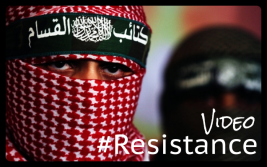

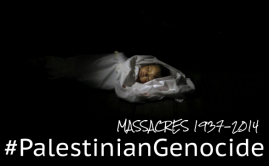





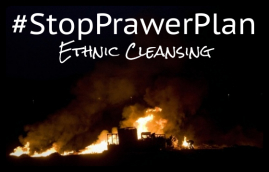





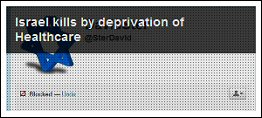
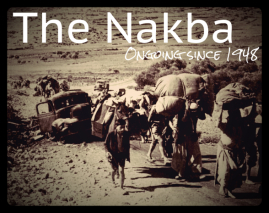




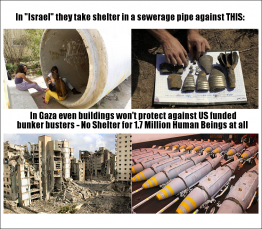





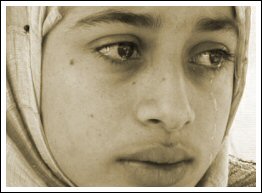
Comments are closed.